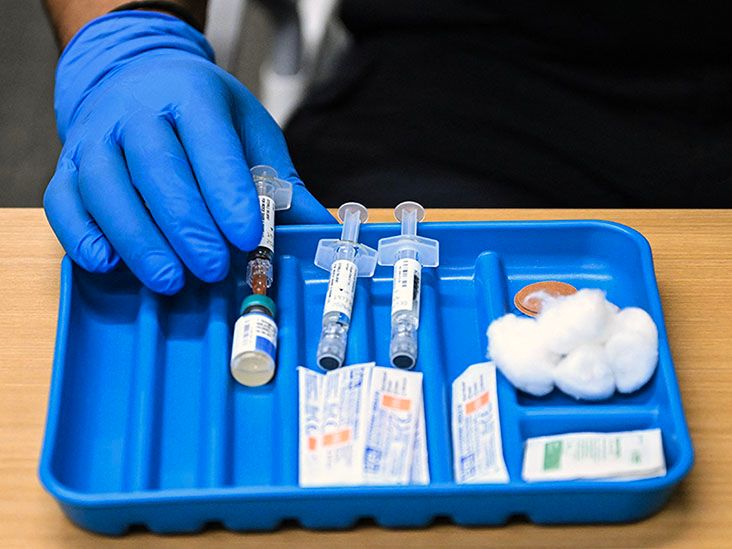Rezdiffra (resmetirom) is a brand-name oral tablet that’s prescribed for a form of liver disease called nonalcoholic steatohepatitis (NASH). As with other drugs, Rezdiffra can cause side effects, such as diarrhea, nausea, and itchiness.
Rezdiffra can cause certain side effects, some of which are more common than others. These side effects may be temporary, lasting a few days to weeks. However, if the side effects last longer than that, bother you, or become severe, be sure to talk with your doctor or pharmacist.
These are just a few of the more common side effects reported by people who took Rezdiffra in clinical trials:
- abdominal pain
- itchiness
- nausea
- vomiting
- diarrhea (for more information, see “Side effect specifics”)
Mild side effects can occur with Rezdiffra use. This list doesn’t include all possible mild side effects of the drug. For more information, you can refer to Rezdiffra’s prescribing information.
Mild side effects that have been reported with Rezdiffra include:
These side effects may be temporary, lasting a few days to weeks. However, if the side effects last longer than that, bother you, or become severe, be sure to talk with your doctor or pharmacist.
Note: After the Food and Drug Administration (FDA) approves a drug, it tracks and reviews side effects of the medication. If you develop a side effect while taking Rezdiffra and want to tell the FDA about it, visit MedWatch.
Rezdiffra may cause serious side effects. The list below may not include all possible serious side effects of the drug. For more information, you can refer to Rezdiffra’s prescribing information.
If you develop serious side effects while taking Rezdiffra, call your doctor right away. If the side effects seem life threatening or you think you’re having a medical emergency, immediately call 911 or your local emergency number.
Serious side effects that have been reported and their symptoms include:
- unusual uterine bleeding, which may include symptoms such as:
- depression, which may include symptoms such as:
- appetite loss
- long lasting feelings of sadness, hopelessness, or guilt
- loss of interest in activities
- sleep problems
- gallbladder problems, which may include symptoms such as:
- abdominal pain that may extend to the shoulder or back
- fever or chills
- jaundice (yellowing of the skin or whites of the eyes)
- nausea or vomiting
- sudden or severe pain in the abdomen, especially after eating
- irregular heart rhythm, which may include symptoms such as:
- a fluttering or rolling feeling in the chest
- a racing heart or skipped heartbeats
- low blood sugar, which may include symptoms such as:
- anxiety
- confusion
- dizziness
- hunger
- irritability
- shakiness
- tendon problems, which may include symptoms such as:
- crackling, creaking, or grating sounds when moving a joint
- muscle weakness
- pain or swelling of a tendon
- trouble moving a joint
- liver damage (for more information, see “Side effect specifics”)
ALLERGIC REACTIONFor some people, Rezdiffra can cause an allergic reaction. In general, symptoms of allergic reaction can be mild or serious.
Ways to manage
For mild allergic reaction symptoms, such as a mild rash, call your doctor right away. They may recommend treatments to help manage your symptoms. They’ll also let you know whether you should keep taking the medication.
For severe allergic reaction symptoms, such as swelling or trouble breathing, call 911 or your local emergency number right away. These symptoms require immediate medical care because they can become life threatening. If you’ve had a serious allergic reaction to Rezdiffra, your doctor may recommend taking a different medication instead.
Learn more about some of the side effects that Rezdiffra may cause. To find out how often side effects occurred in clinical trials, see the prescribing information for Rezdiffra.
Diarrhea
Diarrhea is the most common side effect of Rezdiffra. With diarrhea, you have loose or watery stools more often than usual. In clinical trials of Rezdiffra, the severity of diarrhea ranged from mild to moderate. It tended to start within the first 3 weeks of Rezdiffra treatment.
Diarrhea may get better with continued Rezdiffra treatment. However, having diarrhea was one of the most common reasons for stopping the drug.
Dehydration can also occur when you have diarrhea. Symptoms of dehydration include:
- confusion
- dark yellow urine
- dry mouth
- fast breathing
- fast heart rate
- greater thirst than usual
- skin that stays pinched after you let go of it
- less urination than usual
- weakness
What you can do
Talk with your doctor about your risk of diarrhea with Rezdiffra. They may be able to recommend ways to manage it. If you have diarrhea and develop symptoms of dehydration, get immediate medical care. Dehydration can lead to serious complications.
Liver damage
Liver damage is possible with Rezdiffra. This side effect may be serious.
Symptoms of liver damage include:
- abdominal pain
- fever
- jaundice
- nausea or vomiting
- skin rash
- tiredness
What you can do
Due to the risk of liver damage, your doctor will likely check your liver function during treatment with Rezdiffra.
If you have symptoms of liver damage, stop taking Rezdiffra and call your doctor right away. They can determine whether it’s safe for you to continue treatment.
Below is important information you should consider before taking Rezdiffra.
Other precautions
Before taking Rezdiffra, discuss your health history with your doctor. Rezdiffra may not be right for you if you have certain medical conditions or other factors affecting your health. Be sure to talk with your doctor if any of the following apply to you:
- liver problems other than NASH
- past or current gallbladder problems, including gallstones
- previous allergic reaction to this or a similar drug
- pregnancy
- breastfeeding
- alcohol consumption
Disclaimer: Medical News Today has made every effort to make certain that all information is factually correct, comprehensive, and up to date. However, this article should not be used as a substitute for the knowledge and expertise of a licensed healthcare professional. You should always consult your doctor or another healthcare professional before taking any medication. The drug information contained herein is subject to change and is not intended to cover all possible uses, directions, precautions, warnings, drug interactions, allergic reactions, or adverse effects. The absence of warnings or other information for a given drug does not indicate that the drug or drug combination is safe, effective, or appropriate for all patients or all specific uses.


